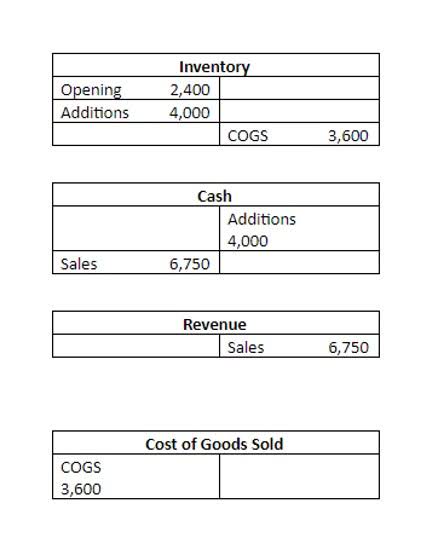NY LawFund: Practical Guide to Attorney Trust Accounts andRecordkeeping

Attorneys striking out on their own—either as newly-minted bar members or as veteran attorneys hanging their shingle—will have to deal with a frustrating obstacle course of bar rules. The Trustees of the Lawyers’ Fund attempt to secure these goals by reimbursing client money that is misused in the practice of law. Regardless of which state you’re in, you cannot, under any circumstances, use an IOLTA account as a savings account or an operating account, even if the money you withdraw from the IOLTA has already been earned.
What is the Purpose of Trust Accounting?

Building transparency income statement by providing a simple explanation of your trust account will benefit your relationship with your clients. Your clients will appreciate your effort to explain, in a clear and simple way, what happens to their payments. It may seem like a lot to handle, but nobody ever said entrepreneurship was going to be easy. With trust accounting, like all things, once you put good habits into practice, they become second nature over time. They produce an unfathomable amount of literature, CLEs, and seminars on trust accounts. Knowing the basics and reading as much as you can is your best bet for staying compliant.
How to Build a Powerful Tech Stack For Your Law Firm

Clients’ trust account money tends to stay in the account for a period of time longer than in the lawyer’s general account—and with reason because general account funds are used for operating expenses. Trust account funds thus bolster the financial assets against which a bank makes loans, allowing it to loan more money in accordance with standard banking ratios of deposits to loans. Unique rules apply, and most lawyers don’t know them, so solos and small firms tremble at the thought of an ethics audit. Attorneys in large firms are usually less troubled, either because they have no contact with that account or because a dedicated team or individual is assigned the task of maintaining it.

IOLTA Account Best Practices
Instead, these funds must be moved to your business account before being used to cover operating expenses. While this may seem like an unnecessary step, failing to enforce a strict distinction between client trust accounts and business accounts can lead to significant issues with trust accounting down the road. The second cardinal rule is that lawyers may not deposit trust accounting for lawyers their own personal or business funds in their escrow or trust accounts.
7 Top Tax Deductions for Lawyers and Law Firms
- Finally, maintaining timely, detailed, and accurate records is crucial.
- The right tool can streamline your workflow and ensure compliance with attorney trust account rules.
- They can also flag any potential misuse of trust funds so that they can be fixed before you face any penalties.
- If you are audited by the state bar, you’ll want to make sure you can produce your trust balances on the fly in an easy-to-read format on a matter-by-matter basis.
- New York has very specific rules on what records a lawyer or law firm must maintain for an escrow or trust account.
Trust accounting software makes the process of tracking, reporting, and transferring funds easier for law firms. When audit season rolls around, having detailed tracking and reporting of https://www.bookstime.com/ trust accounts is essential. By avoiding these common pitfalls, you can ensure compliance with attorney trust account rules and maintain proper trust accounting practices.
- Both statutes vest full management authority in a Board of Trustees appointed by the judges of the New York State Court of Appeals.
- Ready to see just how seamless managing your billing, payments, and accounting can be with Clio?
- For lawyers, these accounts ensure compliance with ethical rules regarding the safekeeping of client funds while also reducing the administrative burden of managing multiple individual accounts.
- Others charge an “intake fee” at the start of the case and the remainder of the flat fee is kept under $2,000 to be exempt.
- While it may seem simple on paper, the reality is that maintaining a compliant and ethical IOLTA account can be incredibly complex and time-consuming, especially without the proper tech stack.
Professional bookkeepers can be an essential support for law firms that need to make sure their IOLTAs are always accurate and up-to-date. They can also flag any potential misuse of trust funds so that they can be fixed before you face any penalties. Bench works with many law firms and is experienced in handling all aspects of law firm bookkeeping—including IOLTA accounts. Your books will be ready for tax season and you can work confidently knowing your IOLTA account is handled right. Even retainer fees can be deposited into a general account if the agreement says that the retainer is not for future work but is, instead, for the lawyer specifically being engaged (and thus taken off the market).
- Regardless of how your law firm does its accounting, the system that you use to keep track of an IOLTA account must conform to the principles of double-entry accounting.
- Deposits are made into the wrong account, clients bounce checks, third parties stop payment on their checks and, with some regularity, New York banks make mistakes in following, or not following, the instructions of their account holders.
- However, keeping track of data for multiple clients can quickly feel overwhelming.
- Since not all financial institutions are familiar with trust accounts, it may not always be a straightforward process.
Use IOLTA-Compliant Software

If they paid you in advance and you didn’t use all the money, they may take legal action if you can’t locate it. Just as it would be wrong to report deposits into a client’s checking account as your own income, it is equally wrong to do so with a lawyer trust account. Your responsibility as an attorney is to manage the trust, not to claim ownership of the assets placed there. You must maintain a strict separation between trust assets and your own assets, including when reporting income. Now, you might be wondering about the different types of trust accounts out there and how they compare.
- If you, or your bank, make one mistake, it could have serious consequences.
- It’s common for law firms to operate one or more pooled trust accounts depending on the nature and needs of the practice.
- One of the core functions of a trust is to ensure that there is no commingling between client funds and the lawyer’s funds.
- Finally, a firm may always establish individual escrow or trust accounts for specific matters or clients.
- This is because lawyers can’t benefit financially from their clients’ money.
Fundraising for Young Attorneys
Managing client trust accounts is vital to a lawyer’s role, but it can feel like walking a tightrope. Staying compliant while navigating a maze of rules and regulations is no easy feat. Software like MyCase’s legal accounting solution is IOLTA-compliant and created with law firms in mind.
